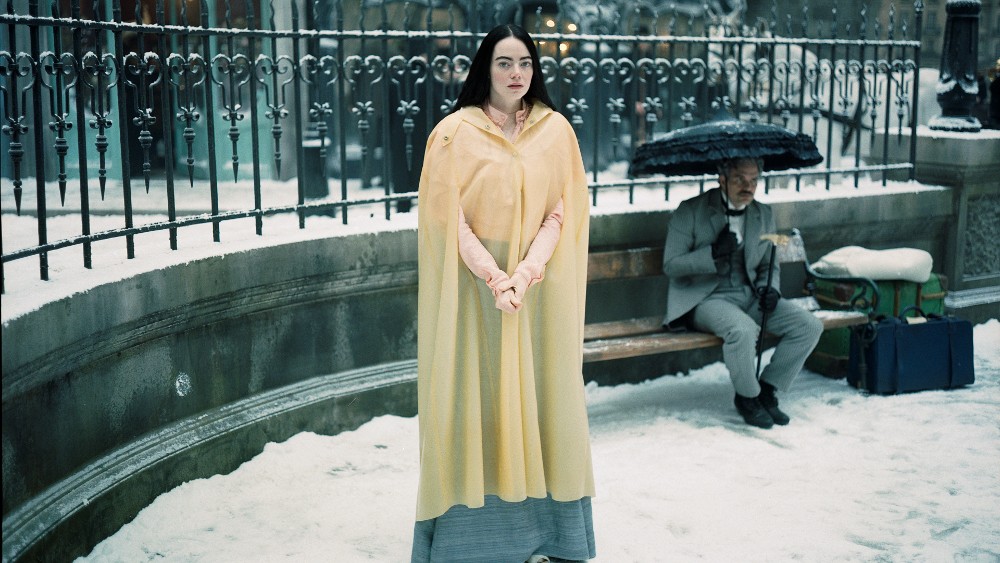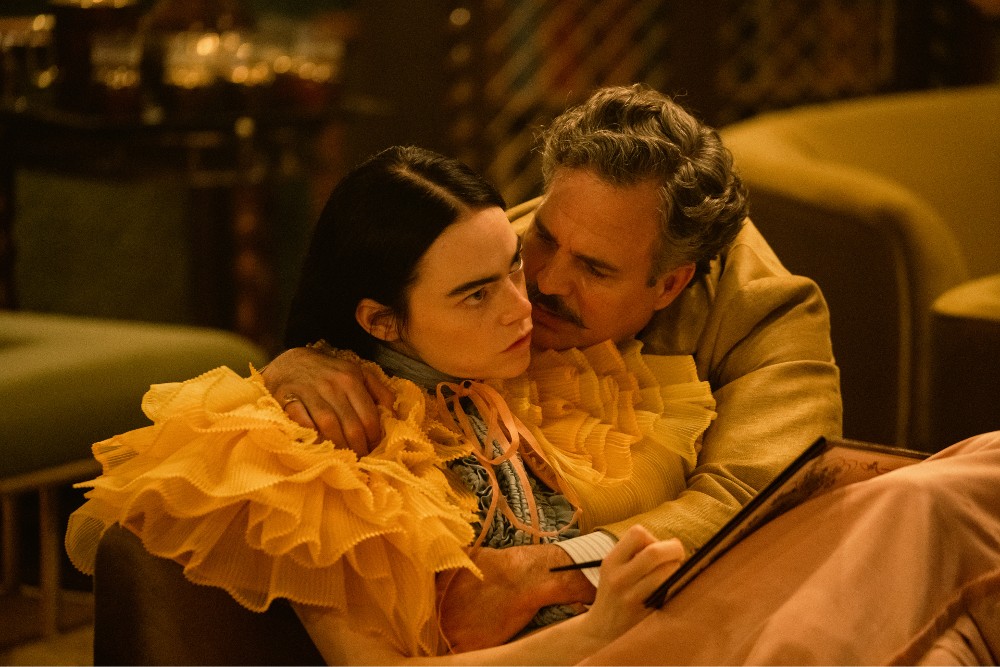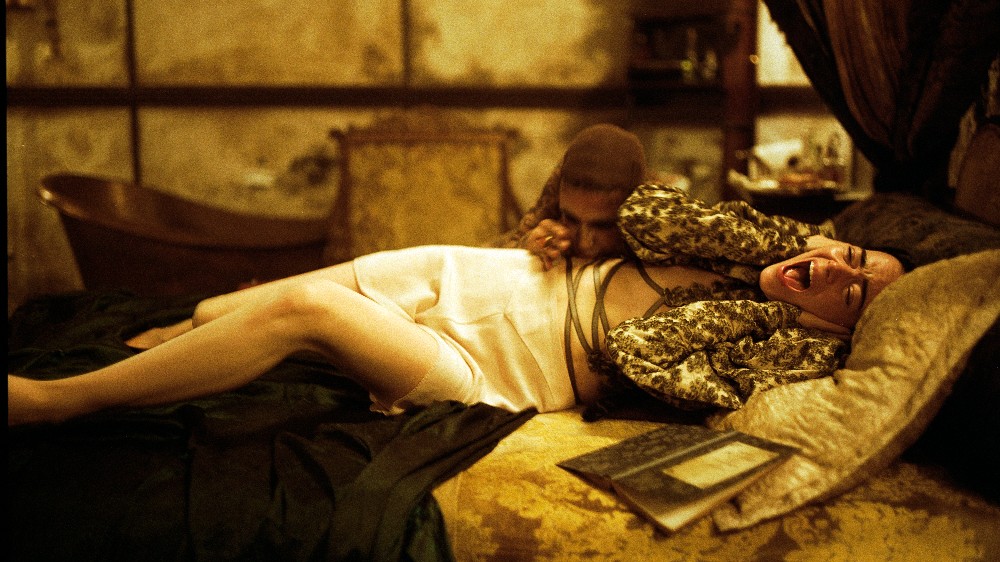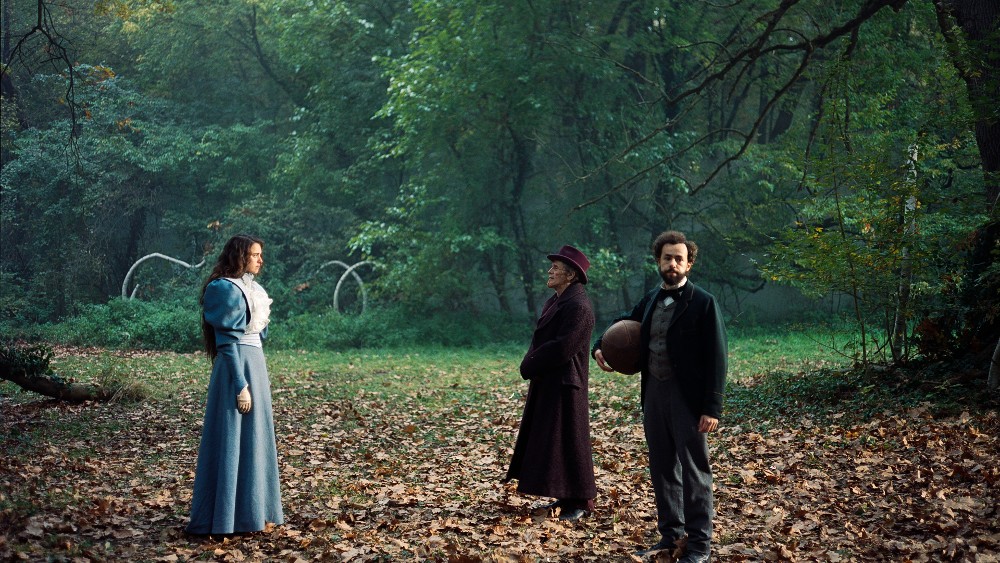
Director Yorgos Lanthimos has left a significant mark on modern cinema with niche classics like The Lobster and The Favourite. But it is in his latest film Poor Things—an adaptation of the 1992 Alisdair Gray novel—that Yorgos delivers a visual cinematic masterpiece. The story, about rediscovering the world and the loss of innocence, is resoundingly convincing. And, thanks to a career high performance by its principal star Emma Stone, the movie is sure to become one of the most talked about, and perhaps most controversial, of the year.
Like Gray’s novel, Poor Things’ plot is straightforward. Bella Baxter (Stone) is an immature child in the body of a grown woman and lives in Victorian England under the care of the malformed Doctor Godwin Baxter (Willem Dafoe), a Dr. Frankenstein type mad scientist that shields the developing Bella from the cruelties of humanity. Bella calls him God, because he is literally her entire world, and displays towards him the affection and frustration of a daughter to a father.
Early on, the film reveals that the good old doc revived Bella’s body after she attempted suicide by implanting the brain of a newborn baby. Bella may look grown, but developmentally, she is a little girl. That is until she enters developmental puberty, discovers the wonder of sexuality, and she and the film go off to the races. Bella meets the sleazy conniving lawyer Duncan Wedderburn (Mark Ruffalo) and leaves behind the stuffy confines of the odd Victorian mansion to explore the tumultuous world.

Poor Things sings in theme, style, and execution, that it transcends and overcomes any brazen directorial choices even the most cynical of critics may be set on nitpicking apart. Thematically, the film invites us to imagine what could happen if a woman who was fully physically developed but emotionally not so was let out into the world. Would innocence prevail? Would she seek to reestablish societal roles? How would she perceive the tropes and stereotypes of class, race, gender, and sexuality that otherwise oppress society, Victorian or not?
Tony McNamara’s script adaptation answers all these questions and more with a mix of sardonic wit, cynical sarcasm, and rambunctious, sexualized innuendo. The absurdness of human moral constraints is on full display thanks to an impressive mix of humor and intellect, one that keeps the film pulsating and alive for the 2.5 hour runtime.

Lanthimos uses an astonishing mixture of visual effects, costumes, cinematography, and production design to deliver the visual triumph of the year. The Victorian setting as well as the streets of the various European capitals that Bella visits mix the actual look of the 19th Century with what those societies imagined the future might look like. That metallic, ornate combination is injected with a vibrant, over-the-top color schematic and bizarre, punk-like drawings that would make almost every movie seem contrived but that mix in well with Poor Things’ eclectic and subversive palate.
Costume designer Holly Waddington dresses the characters in gorgeous Victorian styles as seen through the lens of Mary Shelley’s darker, more cynical vision. Stone also prances around in nymph-like, out-of-her-time costumes, with the obvious message being that she is rediscovering all sorts of societal norms anew. Cinematographer Robbie Ryan, who worked with Lanthimos on The Favourite, puts all the cherries on top.
Stone is so transfixing as Bella, that it is difficult not to coin hers an astounding, masterful performance. She delivers a physical performance in all respects—from conveying Bella’s younger inability to fully control her adult body, to letting herself go into the joy of sexual awakening and discovery. She also delivers, incredibly, an emotional performance amidst all the “angry jumping” scenes, all the blank stare amazement that Bella experiences as she learns more about the cruelty of the world. And when, more mature, she demands for a better rearrangement of societal norms, it feels natural and benign, where any other actress may have made it feel contrived or preachy. Ruffalo and Dafoe are also excellent in sarcastic comedic roles, but Stone is the superstar at the core of the movie.

As movies go these days, Poor Things is likely to engender discussion or even controversy. One of the film’s themes is that female sexual liberation and empowerment includes prostitution, a topic that is controversial to say the least. And the film’s overly, unapologetically sexualized moments is also sure to rile some feathers.
Too bad.
Lanthimos found an incredibly inventive source material and put it through his own vision, one that screams loudly at the edges of modern cinema, urging it to take a leap into the unknown. From a 30,000 foot perspective Poor Things is messy and all over the place, but if you look more closely it all coalesces together into an amazing spectacle about the human experience as rediscovered through Bella.
Along the way, Poor Things delivers crackling lines, boundless humor, and the most impactful style of any film in a long while. That it also happens to deconstruct the human experience, wallow at its cruelty, and stich it back together, Frankenstein-style, into a perhaps grotesque but ultimately livable edifice is its most beautiful feature. It is far and away one of the best movies so far this year, and leaves no doubt that Lanthimos is a genius.
Grade: A
Poor Things had its North American Premiere at the Telluride Film Festival and will be released by Searchlight Pictures in theaters on December 8, 2023.
Twitter: @jdonbirnam
Instagram: @awards_predix





